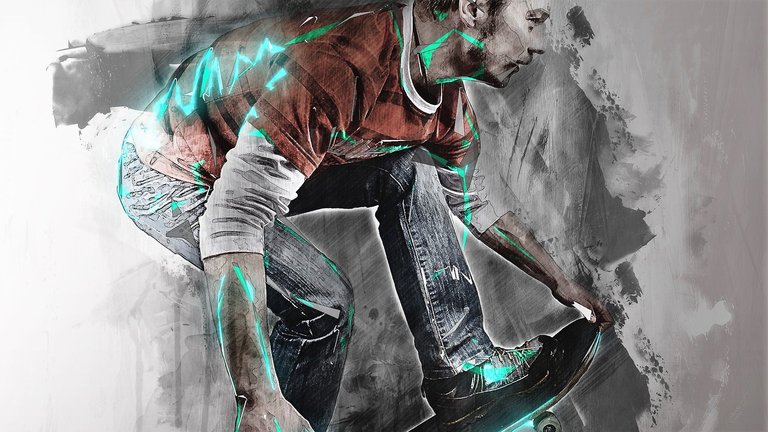
Considering that time simply does not exist, it clearly follows that the movement does not either. Not the speed. Not the acceleration.
We are observers mediated by our kammic composition, or conditional composition, as preferred. Each new condition determines a different state of consciousness and for each state, Samsara reacts by offering a different observation.
Samsara has infinite possibilities in front of an observer. And the reality of experience coagulates in dependence precisely on the observer, this being nothing more than a package of accumulated conditions.
What we understand by "movement" is the difference of experience that Samsara offers us, but there is "nothing" that moves.
Returning to the example of the cinema, the Samsara is the light of the projector and the observer is the film that is placed in front. Depending on the frame, we will see one or another scene. If we stick to the illusion of the cinema there is time, there is movement, there are personnel, there are sets, there are exteriors, there are and speeds and even accelerations.
But none of that is real. It's just an illusion.
The observer falls into the illusion and considers it something real. The observer identifies with the character and considers him as if he were himself. It will tell us that depending on what happens to the observer there are variations in the character. This is true, but although the fictional character depends on the level of consciousness of the observer, he is far from being himself.
An observer immersed in illusion will have "awareness" of time. You can see how a chronometer moves. He will be able to see other characters in movement, he will believe himself to be one of those characters.
Acting as a character, the observer joins in a dream that has many nightmare overtones. In the story you see how the character is born, becomes an adult and ends up dying in a story that usually has more shadows than lights. It is really a long and boring movie, but the identification with the character provokes reactions in the observer and it is these reactions that provoke new conditions that accumulate to the previous ones and in an act of unfortunate feedback, the observer experiences that what happens to him the character happens to him.
And, I repeat, it's not like that.
Anything can happen to the character. That affects the character does not have to affect the observer. But, if the observer reacts to that situation, it is that reaction that does.
Time passes for the character as perceived by the observer, and there comes a time when the character dies. This is because there are conditions that have consequences and birth has the consequence of death. There is no death without birth.
But the film does not end, it does not have to, until it is the observer who stops watching and withdraws from the spotlight of the projector. And there is an underlying condition that we are going to define as staying in the projection. We will call this condition "existence". We could call it "permanence".
When a character dies the projection continues and the observer returns to associate with the character that at the moment appears as the "protagonist".
Imagine only those very long TV series in which they kill the "good" and at the same time another "good" appears with which the viewer identifies himself. It's very similar.
Anyone will say, and rightly so, that the character is dead and will never appear again. That has gone with all the accumulated experience and I do not know what else. And it's true. The observer can no longer provoke the appearance of that character simply because his level of consciousness no longer allows it.
This is the definition of "death".
And, later, if the observer maintains the condition of permanence (or existence) he will be "born" again, with another character. And that new character will be anything from a hellish being to a fun deva. Or a dog, or a scorpion.
Nobody forces the observer to continue watching a movie that never ends because the possibilities are endless. It will never exhaust them. Never.
Or get up, or do not wait for this to "end".
And he can not get up if he is not aware that he is not a character. That is, if he does not "wake up".
There are those who call him to awaken enlightenment. And it is also a good word.
You become enlightened when you turn on your lights to your particular cinema.
You see what there is.
You wake up…
And you go.